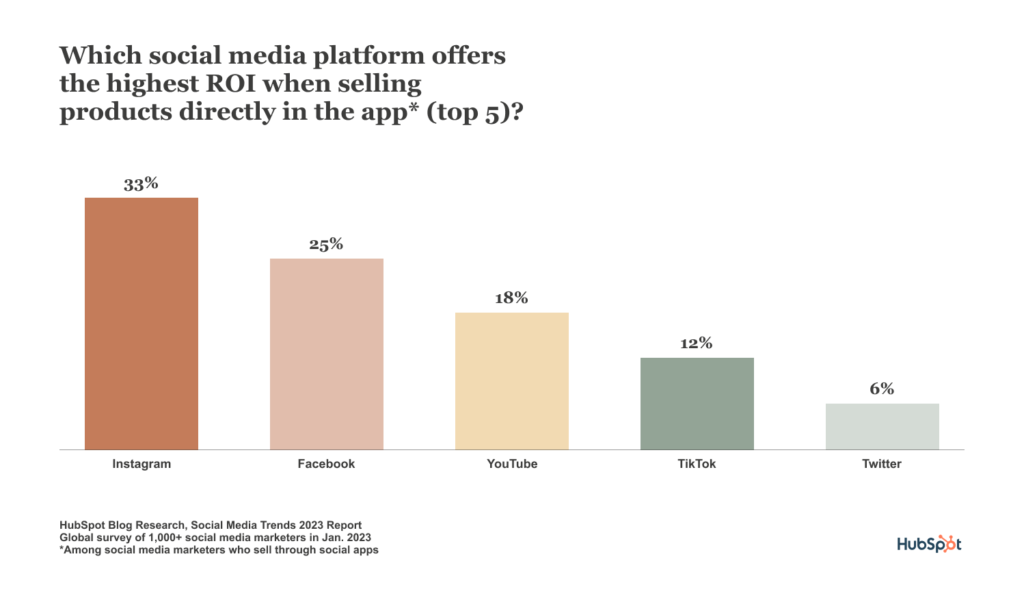How expert social media management can help a brand’s business grow

In the vast, and always in turmoil, digital landscape, social media are today an indispensable communication tool for companies that wish to increase their business and interact in an ever deeper way with people. While on the one hand the importance of social media management can no longer be underestimated, on the other it is also important to rely on the professional figure (always better if internal to the company) who deals with this activity: the social media manager. From building brand awareness to strengthening relationships with customers, today there is no doubt that the figure of the Social Media Manager plays a fundamental role in the success of companies.
Let’s see the main reasons why social media management activity is fundamental for the growth of a company’s business.
What it means to build solid brand awareness
Investing in effective social media management is a critical step in building and enhancing a brand’s online presence. With billions of users on platforms such as Meta (Facebook and Instagram), X (formerly Twitter), TikTok or LinkedIn, social media offers an unprecedented platform to introduce a brand or product to a large and diverse audience.
A well-curated social media presence provides a direct channel with people to convey to them the key elements that define a brand’s image, as well as its identity, through targeted content, a unique and specific tone of voice, and consistent images. This helps shape the target’s perception of the brand, facilitating an emotional connection and recognition among other competitors. It is then crucial that the brand identity evolves in harmony with the constantly changing digital context, since the ability to adapt allows the company to share content that is always relevant to the users who follow it and consequently maintain a significant connection with the public.
The care and attention dedicated to these aspects constitute some of the foundations for building solid brand awareness. Through regular and strategic content sharing, the use of hashtags, and the resulting engagement, social media management can help a business reach new audiences, including potential customers who may not have discovered the brand through social media channels. traditional marketing.
Increase people’s involvement
Careful management of social media allows companies to build authentic relationships with people, interacting with them even on a personal level. A positive outcome of this interaction is that it invites users to share brand-related content on social media. Actively participating in conversations, responding to comments and sharing engaging stories, along with user-generated content (UGC), can be an effective way to engage your audience and create a sense of community around your brand’s products or services.
Social media platforms also offer valuable tools for conducting surveys and gathering feedback from users. This information can be used to refine offers and improve the customer experience.
How to drive traffic to your website thanks to social media
Social media is an effective sharing channel for blog posts, articles, product pages and other content from your company website. It is essential that this content is of high quality. The engagement generated and the connections between users (with consequent backlinks to the site) that derive from it can, in all likelihood, increase traffic to the website, increasing the chances of converting visitors into customers. Furthermore, signals from social media can indirectly influence the positioning of the company website in search engines.
In synergy with what has just been said, paid advertising (adv or advertising) on social platforms helps to direct and optimize targeted traffic to the website. Social media management therefore includes the strategic use of advertising campaigns to maximize ROI. Companies can create targeted advertisements, appear in users’ feeds and thus reach a specific audience interested in their products or services. Sponsored posts allow companies to highlight certain products, particular offers or special discounts, increasing the visibility of promotions and stimulating sales. These types of promotions can create a sense of urgency in shoppers, pushing them to make a purchase to take advantage of the limited-time offer.
One of the main advantages of using social media for online advertising is the ability to implement advanced strategies, such as remarketing and retargeting, to re-engage users who are interested in your products or services, but who have not yet made a purchase. These strategies focus advertising resources on the most interested potential customers, increasing the likelihood of conversion. Furthermore, winning back already interested users can be beneficial as they are already familiar with the business and brand, therefore making them more likely to interact with the advertising and become customers.

[ source: Sprout Social ]
Social media also offers analysis tools to obtain detailed data, which allows companies to monitor and evaluate the effectiveness of their marketing and communication strategies. For example, data analysis allows you to monitor public involvement, the performance of publications compared to certain objectives and conversions on the site or landing page. This information allows companies to make continuous changes and improvements to their marketing strategy, thus optimizing results.
Increase sales and conversions
With the right management strategy, social platforms also prove to be excellent solutions for presenting a company’s products and/or services in an attractive way, with the ultimate goal of effectively transforming followers into customers. Quality, highly curated images or videos allow businesses to stand out in the vastness of online content, capturing users’ attention first.
By answering follower questions, gathering feedback, and building an authentic relationship with audiences, businesses can better understand potential customers’ needs and offer targeted solutions.
Another powerful element that can significantly impact a company’s visibility and sales is collaborating with influencers and content creators. A well-researched influencer marketing campaign can generate excitement around the brand and its products, reaching a wider audience than traditional channels such as television or print. Influencers, considered experts in their fields of interest, have opinions and recommendations that often lead followers to purchase.
However, to maximize the benefits of collaborating with an influencer, it is essential to find the right match between the influencer and the brand. It must be relevant to the brand’s target audience, have a loyal and engaged community, and be in line with the brand’s values and image to ensure authenticity in the presentation of the company and in the promotion of the products.
In addition to the aforementioned remarketing and retargeting strategies, social media advertising offers other user engagement opportunities, such as surveys, contests, and promotional offers. This allows you to create a deeper and above all continuous connection with the public, increasing affinity and trust towards the brand. However, it is crucial to carefully manage these strategies to avoid excessive or inappropriate use of remarketing and retargeting, which could be annoying for users and generate disinterest.
Monitoring and adaptation
One aspect not to be overlooked is that social media provides companies with a real-time snapshot of customer sentiment, allowing them to monitor conversations, track mentions and adapt strategies based on market trends and customer preferences. Furthermore, through competitive analysis, observing the presence and strategies of competitors on social media, it is possible to acquire valuable information to refine the approach and stay updated on the market.
In times of crisis, be it of a corporate or social economic nature, and/or when negative feedback is received, social media management plays a fundamental role in dealing with problems (crisis management), managing public relations and transforming a difficult situation into a growth opportunity. As anticipated, during a crisis, organizations often find themselves having to manage negative feedback from customers, employees or users published within social platforms. This feedback can concern various aspects, such as the quality of a product or service, legal or ethical issues, or an inadequate response to an emergency situation. Addressing this feedback promptly and effectively is critical to managing the organization’s reputation and mitigating potential harm.
Conclusions
In today’s interconnected world, consistent, curated business communication on social media isn’t just a nice-to-have; it is an activity to be foreseen and managed at a company level in an important and structured way. It’s the key to developing strong brand awareness, connecting with people more truly and directly, driving traffic to your website, increasing sales, and continuously adapting to customers’ evolving needs and preferences. Whether we are talking about a small startup or a large company, a communication strategy on social media, and therefore a social media management activity managed by a social media manager, can be the accelerator of substantial company growth.